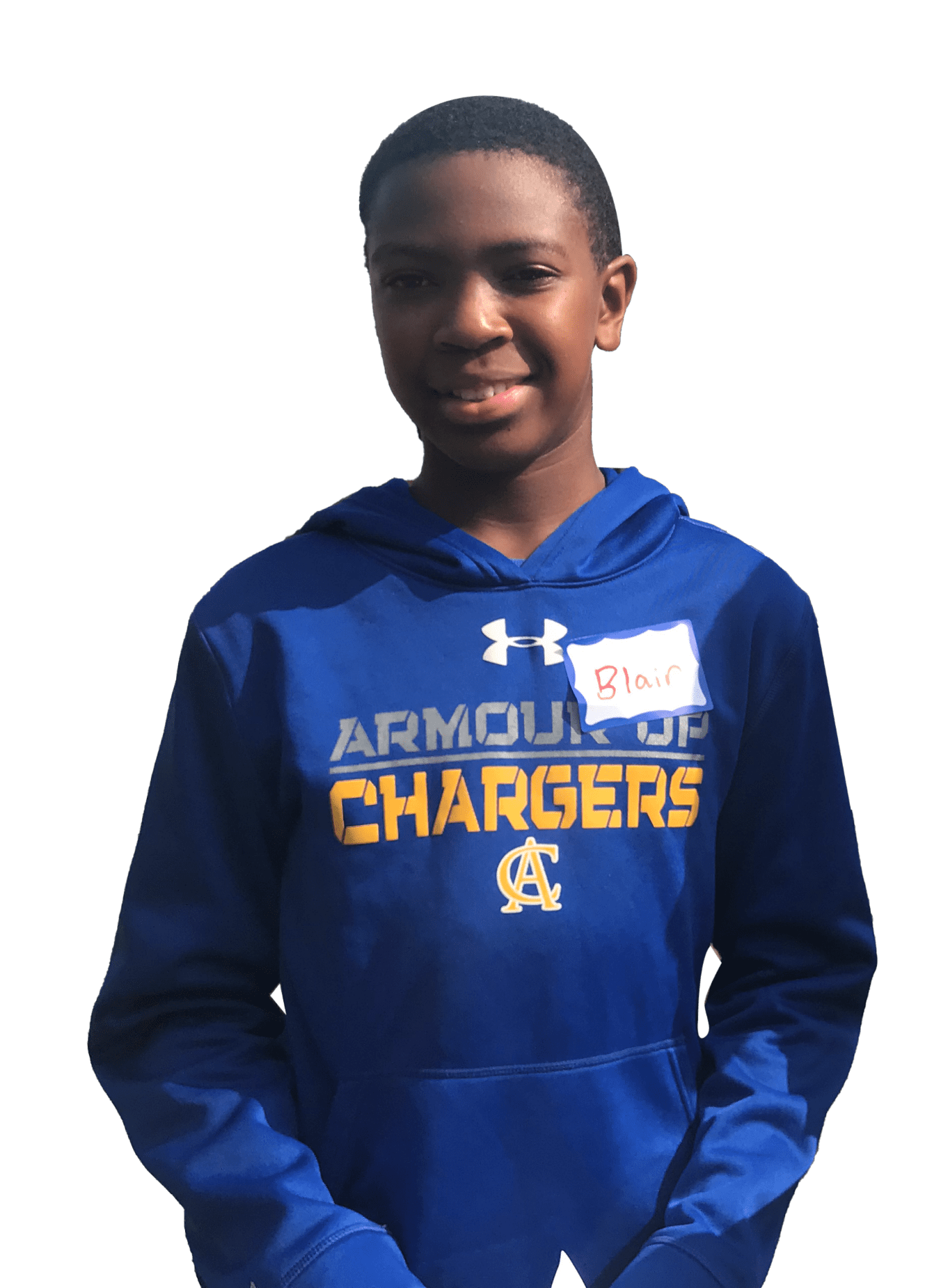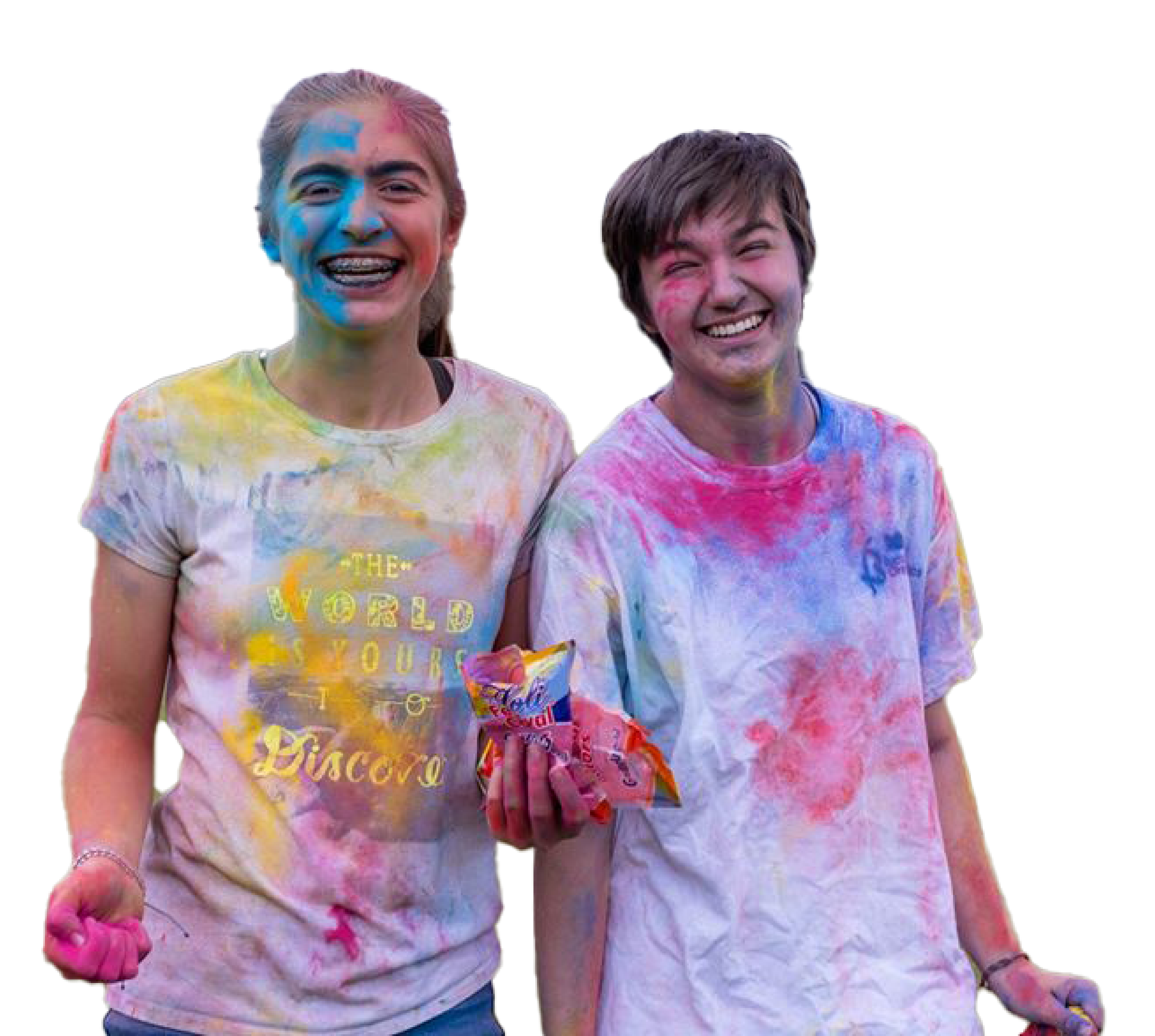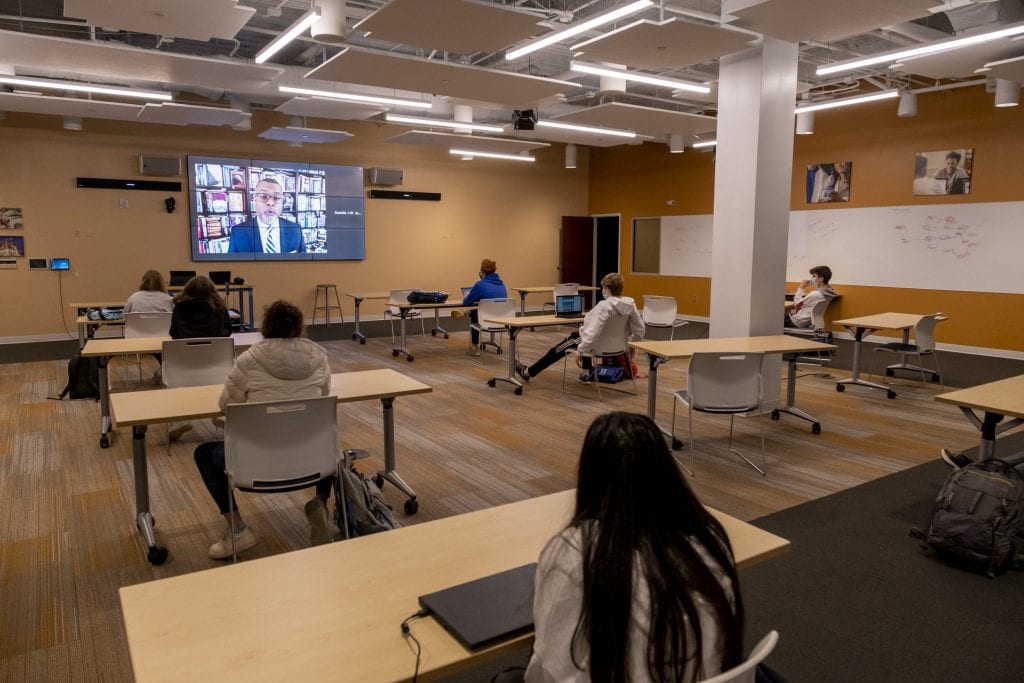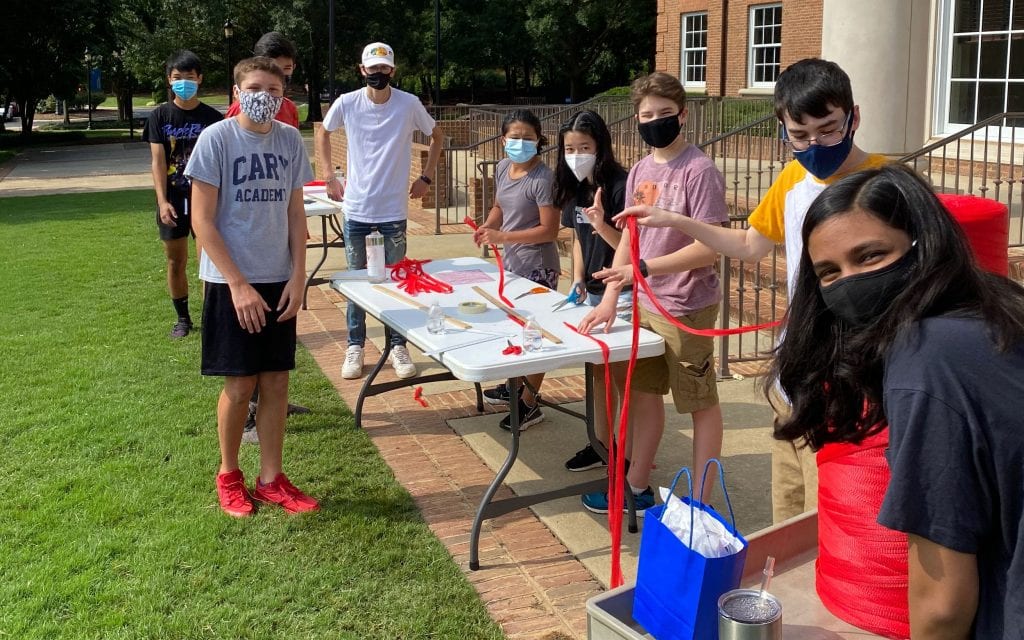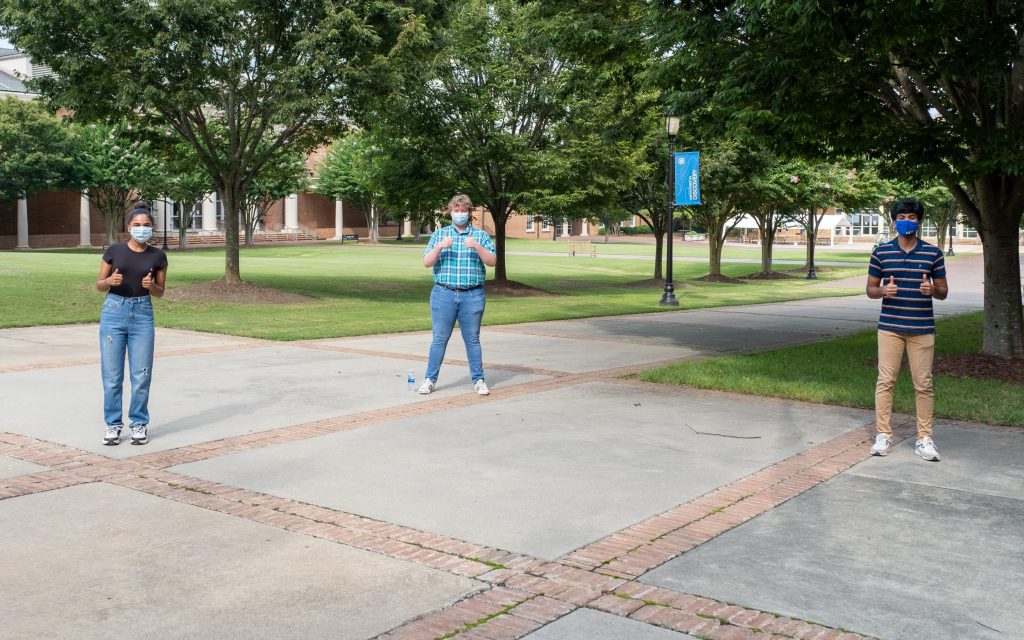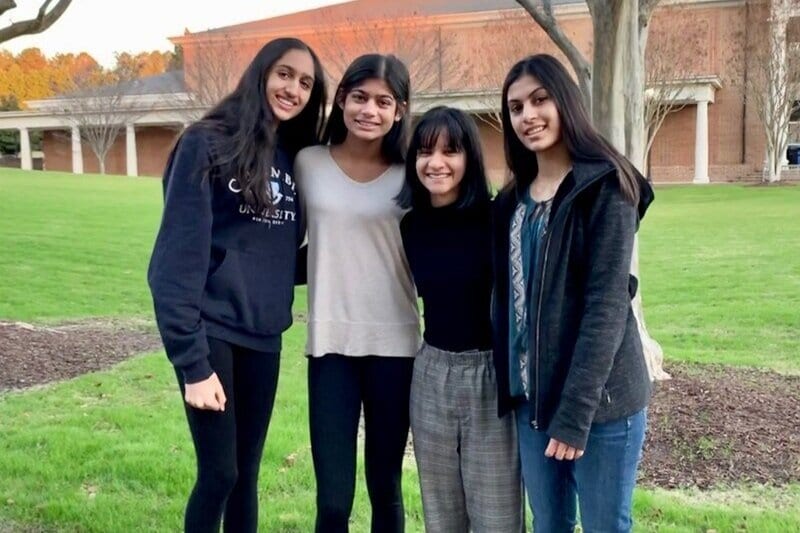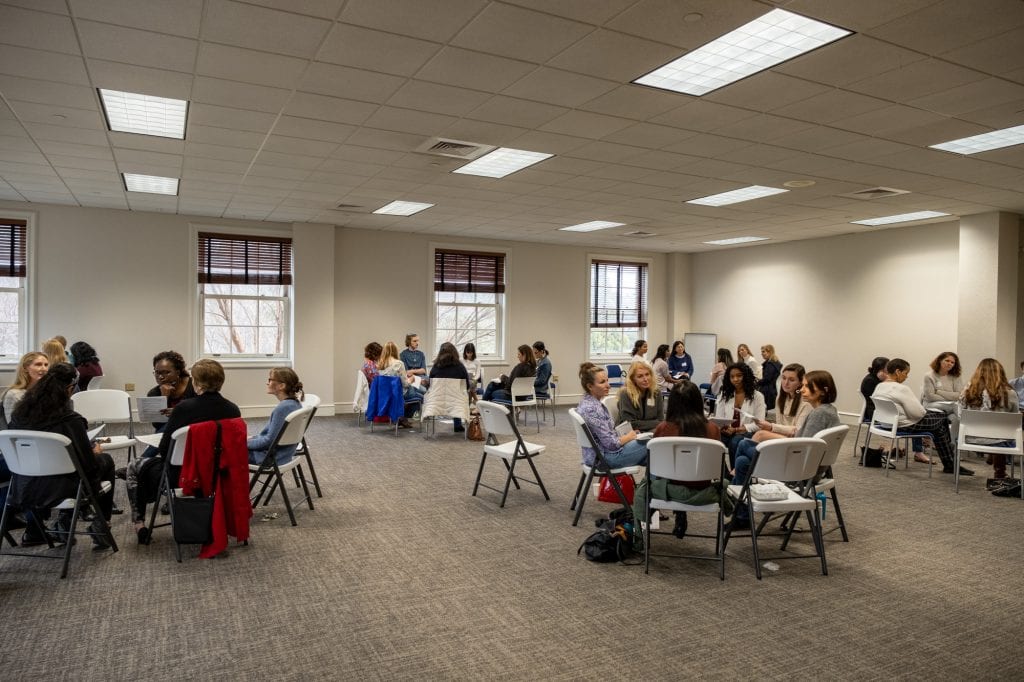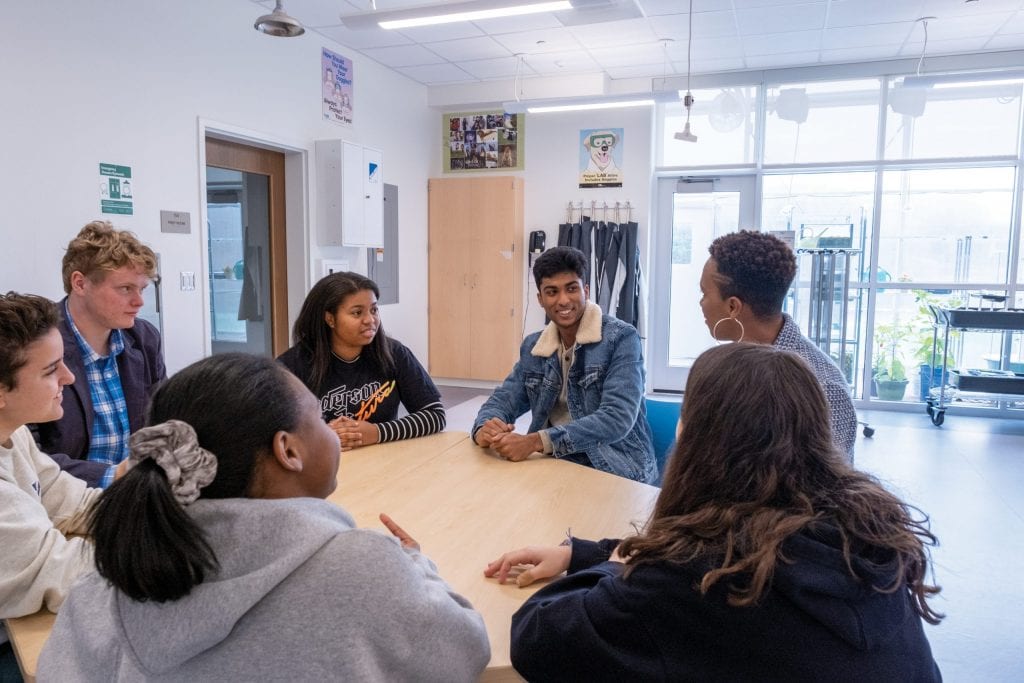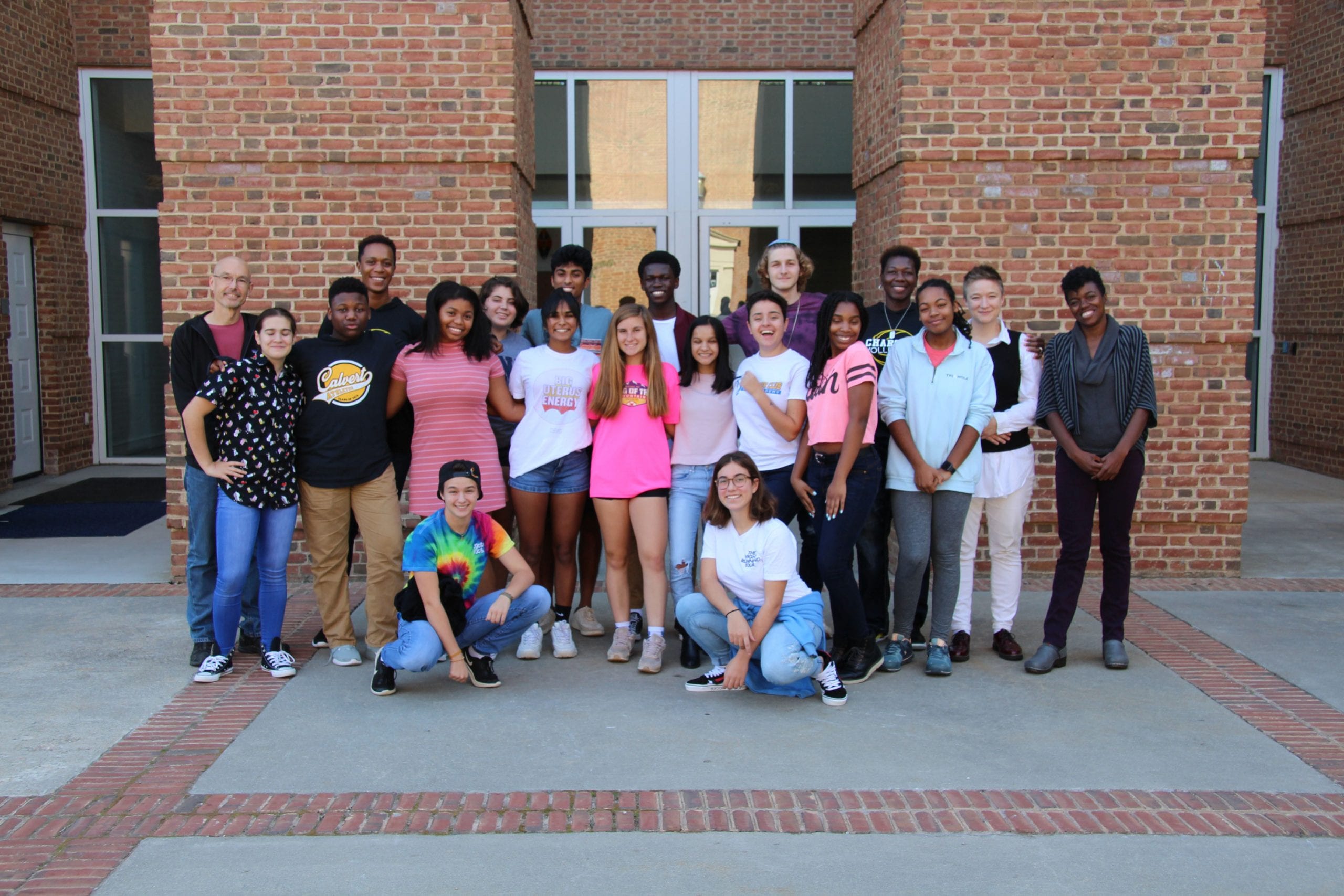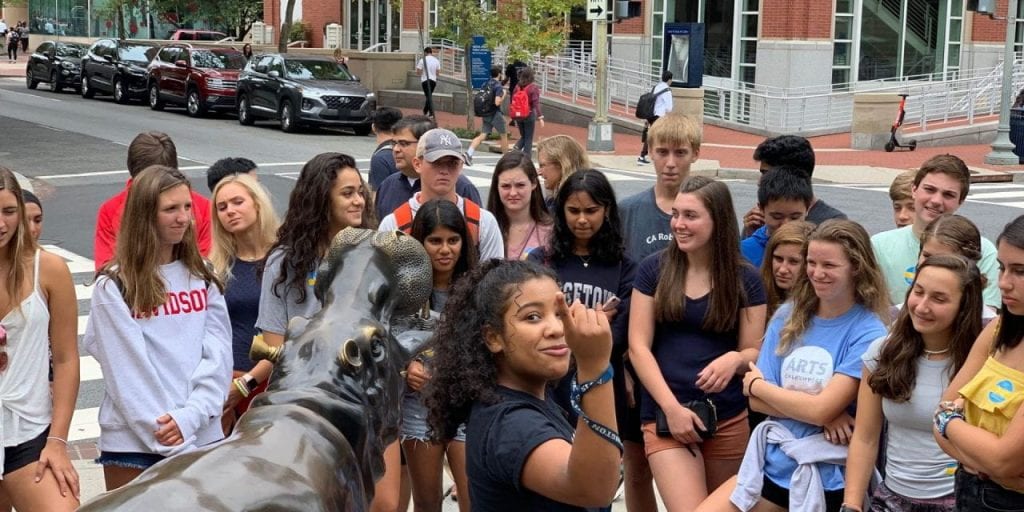Cary Academy has long been committed to providing a holistic learning experience that puts student wellness front and center, one that addresses social and emotional health in addition to academics. That’s why, when the Center for Community Engagement began brainstorming themes for dialogues this year, it seemed like a no-brainer to use this powerful method to dive deeper into ongoing community conversations around social and emotional health.
Why dialogue? I’ll let one of our student leaders, junior Clay Thornton explain:
“Cary Academy is a tight knit community that relies on strong relationships between students, faculty, staff, administrators, and parents to effectively provide students with a safe, healthy learning environment. Without frequent and honest communication, these relationships can be strained, the effects of which can be felt throughout the entire community.
Dialogues Across Differences provides a platform for everyone in the community to candidly share their opinions on topics that have are currently causing, or could potentially cause, disruption at Cary Academy. While the purpose of dialoguing is not to come to an agreement or formulate a plan of action, it allows every member of the community to voice their opinion and work to understand other points of view.
Dialogues Across Differences provides a platform for everyone in the community to candidly share their opinions on topics that have are currently causing, or could potentially cause, disruption at Cary Academy. While the purpose of dialoguing is not to come to an agreement or formulate a plan of action, it allows every member of the community to voice their opinion and work to understand other points of view.”
So, with faith in this powerful approach, earlier this year our student facilitators launched a series of dialogues that address one aspect of emotional health– stress and anxiety—from a variety of different perspectives and dimensions.
Little did we know just how timely it would prove to be.
We kicked off the series in February with a dialogue around the stress and anxiety of parenting. Parents gathered in the Discovery Studio to share their experiences, their worries, and their perspectives in what was a remarkably vulnerable and emotional experience.
We were all touched, even overwhelmed, by how honest and authentic our parents were. We were excited to see parents who knew nothing about each other form bonds as they shared stories, advice, and support for one another. We were elated to see the connection that our parents made with our student leaders. And we swelled with pride to see how our students rose to the occasion as leaders.
We left feeling heartened by the promise of dialogue, the strength of our community, and excited for the next session.
And then the world changed. Suddenly, we had to figure out how to transition these conversations—these personal, intimate, vulnerable, face-to-face interactions—to a cold, impersonal, virtual world.
Challenges abounded. We were worried about the technology. Would Zoom even work for this format? Our student facilitators wondered if they were going to be able to make genuine connections. Would anyone be willing to be vulnerable in a virtual space?
But, as is the CA way, we embraced the challenge as an opportunity for growth and innovation. Zooms were established. Technology was tested. And I’m proud to say, our student facilitators and our broader community embraced the opportunity.
In fact, our first two online dialogues were even more powerful than our in-person session. Our current situation means that we are all yearning for an outside connection.
After each dialogue I usually receive a few emails from participants thanking us for offering this space. I can often tell that most parents are surprised by how forthcoming they felt they could be in this setting, how much they get out of the experience.
One of our student facilitators, junior Jordan Cuffee reflected on the impact she has seen on our parents who have participated in one of our three dialogues thus far:
“After both the in-person and virtual dialogues, the parents voiced their appreciation for having a space like this to speak freely about their experiences at Cary Academy. From a facilitator perspective, the small groups, communication agreements, and confidentiality rule seemed to allow the parents to really lean into being vulnerable and open.
They knew the information they shared would remain within the group and that they could share without judgment. Both the moms and dads could relate to each other in their experiences while being a CA parent. They spoke about their own stresses, the stresses of their family, and, more specifically, the stresses for their child.
A majority of the parents I facilitated for spoke about their desire for their child to attend CA to prepare them for a successful future. Many mentioned wanting their students to get into good colleges, which caused families to fully stress academics.
Most of the parents I facilitated for either have, or had, multiple children in CA. They realized their family dynamic changed from a focus fully on academics to one that understands their children’s needs to explore activities on their own, to have breaks, to be checked up on, and to know it’s okay to not be perfect at everything they do.”
I cannot overemphasize the important lifelong skills that our student facilitators have gained through this process.Empathy, communication, active listening, the ability to hold respectful space for difference. These are skills that will carry our students to college and beyond. That will not only help them in the board room, but in every aspect of their lives.
Junior Tommy Frank shares his thoughts on being a facilitator.
“At the heart of facilitating dialogues is one invaluable skill that extends to all interpersonal interactions: the ability to build, to coordinate a space for people with varying backgrounds and situations to work toward one purpose, at least for one brief hour or two.
This is what makes dialogue facilitation so paradoxically tiring yet rewarding. As each participant holds onto thoughts from outside of a dialogue, the facilitator must bring everyone into the conversation, must direct their minds inward toward that common space, through their questions, through their body language, and through their dialogue’s agreements.
I have learned this ability most directly from my experience facilitating dialogues, and I believe it will be the most relevant in my life beyond Cary Academy.
I often notice for myself and for close friends and family that the most rewarding social activities are the hardest to organize. But though they often begin with frustration and anxiety, they end with someone saying, “We should do this more often.”
I anticipate that what I have learned through dialogues will help me assemble efficient, productive groups of people, whether the purpose is dialogue, school- or work-related collaboration, or simply enjoyment.”
As the year winds down and we get ready to say goodbye to our senior facilitators, we will be offering additional students the opportunity to apply to be trained as dialogue facilitators. And we encourage students to consider joining in on what has been, by all accounts, a powerful and rewarding learning experience, and one that offers something invaluable back to our community.
Junior Vibhav Nandagiri shares his thoughts on being selected to be a student facilitator:
“The process of facilitation has given me a new appreciation for the act of conversation. Prior to facilitating, I took conversations and disagreements at face value, often failing to address what was at the core of pressing issues.
More students should look to facilitate simply because it can and will change your perspective on interpersonal communication.
Another reason to facilitate is self-improvement. Through facilitation, I picked up several soft skills that I wouldn’t have been able to otherwise. I learned how to avoid conflict, how to listen deeply, how to communicate nonverbally, and how to be emotionally locked into a given moment.
The final reason more students should facilitate is that they get to be part of a process that is actively seeking to make positive change in our school community. The student facilitators, as a group, are driven, caring people who all want to see the CA community better off than it was a week, month, or year ago, which in itself is an incredibly powerful message.”
On behalf of our student facilitators and our entire Center for Community Engagement team, I invite you to join us for a dialogue the next time you see an invite in your mailbox.
Our hope is that you discover these sessions as important opportunities to come together to share and learn from each other and to release some of the stress and anxiety that we are all currently experiencing. Ultimately, I think we will emerge as a stronger CA for it.
After all, as junior Sarah George points out:
“Although the dialogues have been quite successful so far, if more parents were to join, the overall caliber of these discussions would improve.
When there are more participants, there is a greater chance for a range of experiences to be included, enriching the conversation and providing perspectives that may not have initially been present.
Furthermore, first-time parents have the opportunity to learn from and relate to other parents they may not regularly interact with.
These dialogues ultimately work to create discussions that will be for the benefit of the students.”
Below you can find a tentative schedule for upcoming dialogues (more may be added in the near future). We hope that you can join us at one of them.
Student-only dialogues
- Student facilitators, Stress and Anxiety: April 20 and 21, 10:00-11:30 a.m.
- Upper School Student Dialogue, Stress and Anxiety: April 27 and 28, 10:00-11:30 a.m.
- Middle School Student Dialogue, Navigating these Times: May 4 and 5, 10:00-11:30 a.m.
Faculty/staff dialogue
- Teaching in this Moment: April 23 and 24, 8:00-9:30 a.m.
Parent dialogue
- Parenting Students of Color: April 25, 11:30 a.m.
Alum dialogue
- Early Alum Dialogue, Navigating these Times: May 9, 11:30 a.m.
